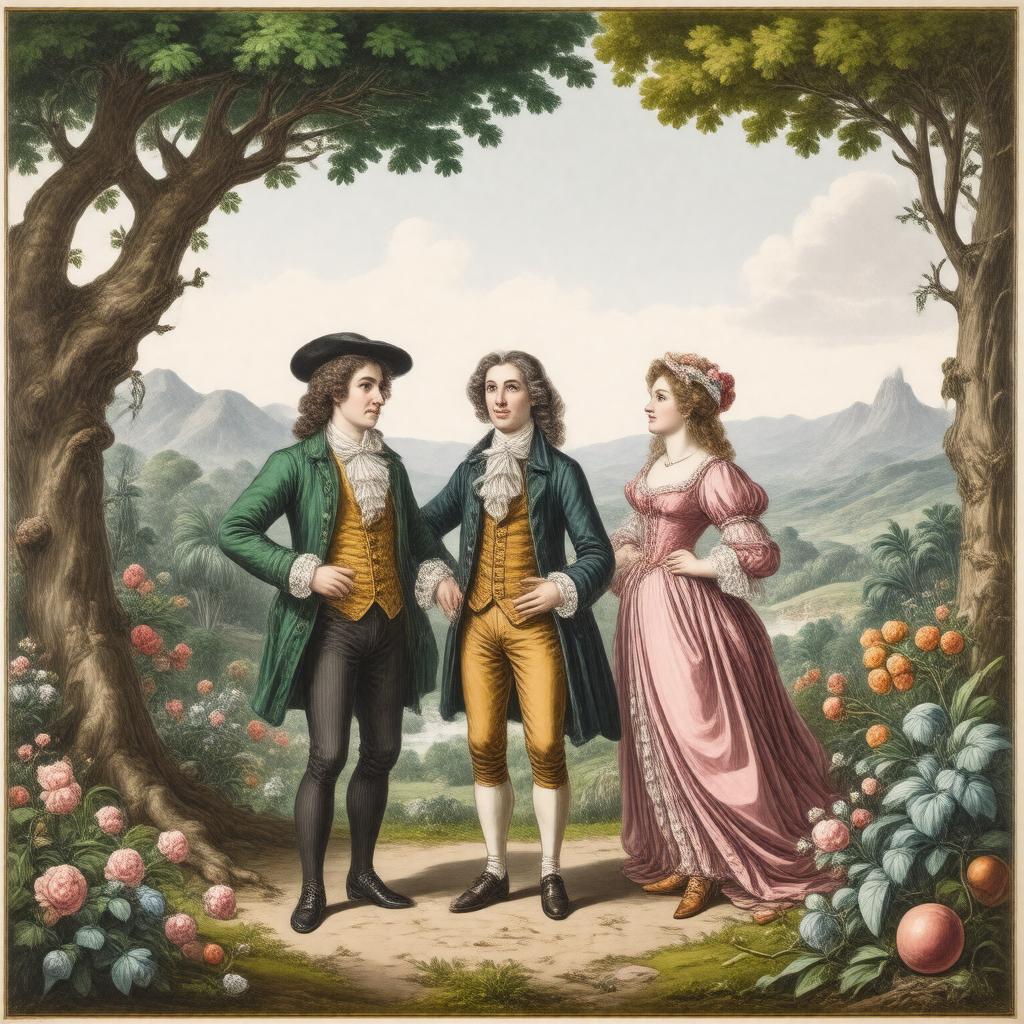Prompt
"Create an image of a 18th-century French satirical novel, representing 'Candide' by Voltaire, with a whimsical illustration of Candide, Pangloss, and Cunégonde standing in a lush garden, surrounded by European and South American landscapes in the background, incorporating elements of optimism, philosophy, and social critique, in a neoclassical style with soft watercolor colors, reflecting the literary period of the Enlightenment."

